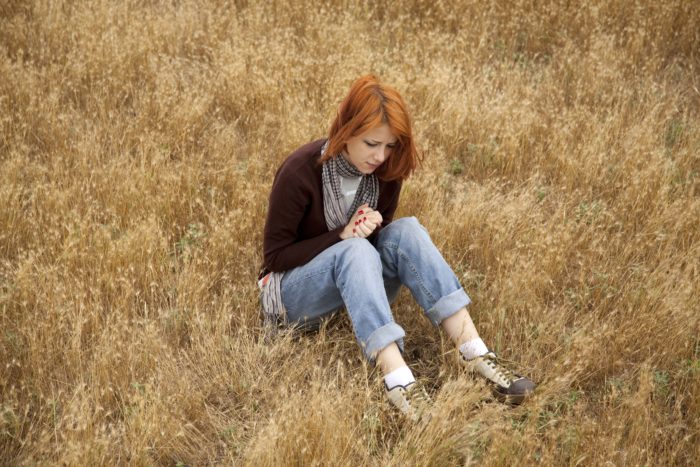She waits all day gazing at window longing for her mother to get home from work. Her grandfather abused her every day while her mother was away. She didn’t really understand what was happening but realized that whatever was going on, was definitely not right. She, therefore, feared rejection,
What is child sexual abuse?
World Health Organization (1999) holds,
Child sexual abuse is the involvement of a child in sexual activity that he or she does not fully comprehend, is unable to give informed consent to, or for which the child is not developmentally prepared and cannot give consent, or that violates the laws or social taboos of society. Child sexual abuse is evidenced by this activity between a child and an adult or another child who by age or development is in a relationship of responsibility, trust or power, the activity is intended to gratify or satisfy the needs of the other person. This may include but is not limited to:
— The inducement or coercion of a child to engage in any unlawful sexual activity;
— The exploitative use of a child in prostitution or other unlawful sexual practices;
— the exploitative use of children in pornographic performance and materials”.
Indian laws divide child sexual abuse into three categories,
- Penetrative sexual act (Involves insertion).
- Sexual assault without penetration (Such as touching genitals with sexual intent).
- Sexual harassment (Exhibiting body part in front of the child with sexual intent, following or watching a child constantly with sexual intent.
How common is this?
Child sexual abuse is a taboo and very difficult to study. It has the most important disadvantage of suppression, that is, many victims choose not to open up about their experience because of the fear of societal rejection. There is serious lack of real data regarding the original prevalence of it. In a study by Finkelhor and Hotaling (1990), in American population victimization was reported by 27% of the women and 16% of the men. But a reverse picture is found in most of the studies based on the Indian population. For example, a study among school going children in 2006, 48% of boys reported having been abused, the prevalence rate among girls was 39%. Even in another study by Ministry of Women and Child Development published the “Study on Child Abuse: India 2007” with a large sample size, involving 13 states of the nation 52.94% of the victims were boys and 47.06% girls.
Just imagine! Almost half of us are sufferers of this malady. Almost half of our daughters can face this in the delicate and vulnerable time of their childhood.
Risk from family
The family is a shelter for us. It is our safe haven in the face of the storm. But how about when this shelter breaks down on you! Relatives and family, who are supposed to safeguard one’s childhood, can rip it apart as well. Your own home may not a safe place for your children.
According to WHO, Incest/ intrafamilial abuse accounts for about one-third of all child sexual abuse cases. Finkelhor reported that girls are more likely than boys to be abused inside the family. About half the victimization of girls occurs within the family. For boys only 10% to 20% occurs in the family. And, a number of strategies are used by the abusers to hide their criminal acts, such as threatening that their parents will be harmed or killed, they will be rewarded, isolating the child from others, filling the child’s unmet needs, filling needs and roles within the family, treating the child as if he or she is older etc.
Detection of sexual abuse
As I mentioned above, due to the threats of the abusers, often the victims don’t report their problems. They think their parents will not believe in them, the helplessness in such condition is fatal. Now, if your daughter does not tell you about her experience, what are the signs that you should check?
- Most of the time disclosure occurs from the change in behaviours related to genitalia, for example, itching in the vagina, pain in the abdomen, burning sensation.
- Not only physical changes, but changes in behaviour are more important. For example;
- Absent-mindedness
- Lethargy and mood swings
- Looking disturbed most of the time.
- Bedwetting
- Nightmares
- Disturbed sleep
- Preference to stay alone
- Outbursts of anger
- New adult words for body parts and no obvious source
- Fear from certain places
These symptoms not necessarily always mean that a girl is a victim of sexual abuse. But the presence of many of these symptoms means you require talking to her immediately, with patience, trust and care.
What are the steps to be taken?
Famous actress Kalki Kochlin mentioned, “I allowed someone to have sex with me at the age of nine, not understanding fully what it meant and my biggest fear after was, that my mother would find out. I felt it was my mistake and so I kept it hidden for years. If I had had the confidence or awareness to confide in my parents it would have saved me years of complexes about my own sexuality. It’s important that parents remove the taboo around the word sex or private parts so kids can speak openly and be saved from potential abuse.”
- If parents don’t trust their children, it’s more likely for the children to hide sexual abuse from them. Providing your children the faith that no matter what, you will always be there with her is necessary.
- Every day talk to your daughter about her experience of the day. If you do that every day, she will normally develop a tendency to share stuff with you.
- Provide her with basic knowledge regarding the areas of the body not meant to be touched by any person except doctors in the presence of parents or mother.
- If anything bad happens, don’t feel shy or hesitate even for a moment to pursue the issue legally. Remember, if you don’t take any step today due to societal fear or something, your daughter is never going to forgive you later.
- Trust your child. Maybe sometimes you may feel like she is talking about something that can not happen but listen to her.
- A physical treatment is necessary albeit not enough. A psychological counselling is a must. The trauma that she faced will have a real long-term impact on her mind. Some abuse specific cognitive behavioural therapies are required.
- Support from the family is the most important healer. Sometimes, the family members also feel like victims of the situation. Support groups of family members and abused children may work well in such cases.
Adversities are common. Sexual abuse of children has to be dealt with courage and openness. Hiding a wound will only increase the infection. Applying disinfectant on it may sting, but is eventually life-saving surely. Embracing our daughters with trust is perhaps the best option. What say?
Disclaimer: The image is merely representational.
Read More:
Gang Rapes- Psychology and Dynamics
Can India be Safe for its Women?



















